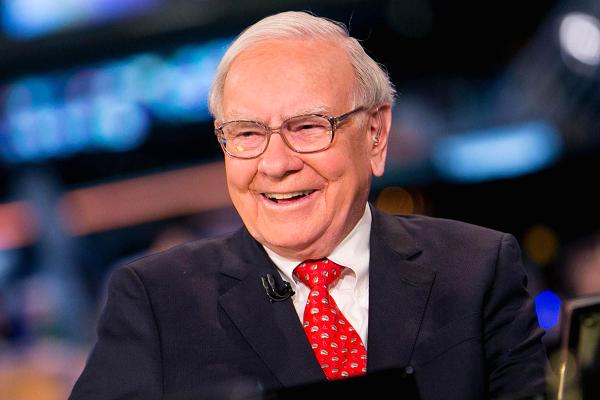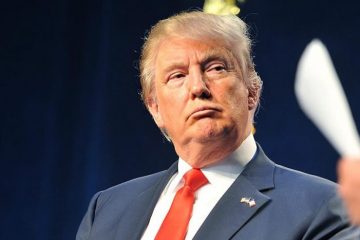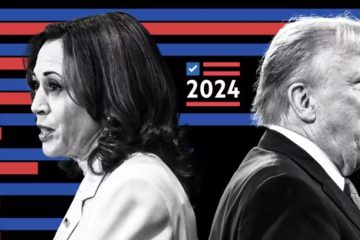Warren Buffett has a message for his fellow former Hillary Clinton supporters: Don’t worry too much.
In only his second interview since Donald Trump won the American presidential election, Buffett, the chairman of insurance conglomerate Berkshire Hathaway brk.a and the world’s most famous investor, told Fortune that he thinks the President-elect won’t derail the U.S. economy or the stock market.
Buffett was a vocal supporter of Clinton, holding more than a dozen fundraisers for her, and even hiring a trolley in his hometown of Omaha on election day to get people out to vote.
Nonetheless, Buffett says the U.S. will be wealthier after Trump’s presidency. What’s more, the Sage of Omaha says the outcome of the election hasn’t made him pessimistic about the U.S. stock market. He’s still buying the same stocks he was before Nov. 8.
On top of that, Buffett says his company, which has already spent $ 15 billion in the past decade on building wind farms, is likely to continue to pour billions more into developing the renewable energy technology. That’s despite the fact that Trump, who has called global warming a hoax, has indicated that he would like to roll back wind energy generation tax credits.
The President-elect recently told The New York Times that he is not for subsidizing wind farms. “I mean, for the most part they don’t work. I don’t think they work at all without subsidy, and that bothers me, and they kill all the birds,” Trump said.
Buffett says his company’s investment has been good for both his company and its investors and customers, as well as for society as a whole.
Below are edited excerpts from Buffett’s conversation with Fortune, which took place on Nov. 15.Fortune: You are a person that has consistently been optimistic about America.
Buffett: Very.
Are you optimistic about America today?
Sure, sure. You can’t stop this country.
So the results of the election have not changed your optimism?
Not about the economics of the country. The aggregate output of this country per capita is going to keep going up. Now who gets it depends on what government decides in terms of tax laws and all that. But America will be a wealthier country per capita five years from now, ten years from now, and twenty years from now. You name it.
Do you think the stock market will be higher four years from now than it is today?
I would not make a prediction on the stock market ever. I’m very long-term. Long-term, the stock market is going to be higher, and I’ve written that many times. In terms of what it’s going to do next year, or tomorrow, I have no idea. The stocks we were buying and selling the day before the election were the same stocks we were buying and selling the day after [the] election.
Do you see anything in Trump’s policies that are good or bad for the market?
I’m not looking at it. I don’t know what the market’s going to do at all. Never have, never will.
A few years back you wrote in Fortune about a plan to eliminate our trade deficit. Are you going to call Trump and offer that up as a policy?
I’ve never called any president in my life. I never have and I never will. It’s presumptuous. I guess if I knew a nuclear bomb was someplace I’d get on the phone pretty fast.
Alright, but do you still think your plan, essentially granting tradable import credits to anyone who exports, is a smart way to go about it?
I think that the president needs to understand that, one: The more trade, the better for us and the world over time.
Secondly, the benefits of free trade are diffused over 320 million people. You buy your shoes a little cheaper; you buy your underwear a little cheaper, because of free trade. But the penalties to the person involved, the steel worker in Ohio or the textile worker in Massachusetts are very, very extreme. And some guy that’s spent 35 years of his life making steel so I can buy my underwear a little cheaper understandably feels the system is not working right if he’s not in some way taken care of.
And so I think that we need to have free trade and we have to have policies that moderate and hopefully even cure the damage that are done to the lives of people who are perfectly decent citizens, who’ve spent their life in one trade and at 55, they’re not going to be able to retrain for something else very well.
So you’ve got to have a two-pronged policy. And at that point, I think you’ll have more support for trade.
A lot of people have said we’ve learned there are deeper divides in America. Is there anything that you would say you learned from the results of the election?
If you go back to the first election I voted in, which was Eisenhower versus Stevenson in 1952. Nobody walked into the polling booth and pulled the lever for Eisenhower because they hated Stevenson. And they didn’t pull the lever for Stevenson because they hated Eisenhower. They were for somebody. This election I think, no way to prove it exactly, but a very significant percentage of people went in and voted against the other person.
But you were pretty enthusiastic for your candidate.
Oh yeah, definitely. I think I had 15 fundraising events for Hillary.
Have you talked to Hillary since the election?
No.
You have invested $ 15 billion in developing wind energy. And have pledged to at least double that investment. Why wind?
Iowa is the Saudi Arabia of wind. And it’s enabled us to keep prices very low. It’s also brought in lots of industry to Iowa because the high-tech companies, particularly in the server farm business, which uses a lot of electricity, they not only like the low price, but they also like the idea of using wind energy.
How did it come about?
Dave Sokol [a former Berkshire executive] and Greg Abel ran it together for a long time, and then Greg is running the last five years himself. And they made those decisions. Now they were part of Berkshire Hathaway’s consolidated tax return, so they could do it on a scale that most standalone utilities could not do, for sure.
Do you view this as something you have to do to protect your utility, or a good investment?
Well, society has made an intelligent investment. Investment in wind wouldn’t have gone forward in virtually all cases, unless there was the tax credit involved. So the government has said, “We are willing to forego a certain amount of tax receipts in order to foster wind, and solar as well.”
It’s a government-induced result, which I think makes sense for society and makes sense for our consumers, and it makes sense for Berkshire as an investor.
Berkshire Hathaway Energy, according to at least one analysis, has among the lowest returns of all your businesses, and gets the most capital. Why not invest less in energy and more in, say, Burlington Northern Santa Fe, which has some of the best returns of all your businesses?
A 22,000-mile railroad needed $ 4.5 billion last year and that’s what we gave them. If you gave them another billion dollars there isn’t anything to do with it. You’re serving your customers already and your track is in good shape. We allocate capital to the needs of the business. You can’t force-feed a See’s Candy. We’ve tried 50 different ways to use additional capital.
But I think the return figures that you have are wrong. We paid $ 35.05 a share for the utility [in 2000]. And this year it’ll earn something around $ 30 a share, after tax.
But you’re adding wind capacity. You now are the largest utility but you’re soon to be the largest producer of wind energy.
We’d love to grow in solar. We’d love to buy another [utility]. You can’t expect to get returns in the utility business [that you get in other businesses]. It’s not a great business, it’s a good business. And the more money we can put in good businesses the better I like it. Particularly when we’ve got terrific management. Our utility business, ten or twenty years from now, will be a whole lot bigger than it is now.
You’ve praised Amazon for years and never invested in the company. Is that a regret?
Yeah, the guy, Jeff Bezos is one of the great managers of all time. I won’t comment on what we do on any stocks but you’ve seen what we have done in our portfolio so far.
More and more investors have embraced passive management—investing in index funds and ETFs. Is the next Warren Buffett going to be an index fund?
I don’t know about ETF, but passive will beat active over time. But not for the manager. The manager’s going to make money out of active and the investor’s going to do better with passive. I’m writing a lot about this subject in next year’s annual report. I really am. A lot.
The first two years, when Todd Combs and Ted Weschler joined you, you talked about how their investment performance had outperformed you. The past two years, you’ve been silent on how well they are doing. Are you planning to write anything about them in the next year’s annual report?
I probably won’t be discussing individual performance or individual stocks. And Debbie just handed me a note that
You’re supposed to stop talking to me?
Yeah, yeah.
Alright.
Good luck with it.
Thank you very much, I appreciate your time.



